About Madison West VA Clinic
Madison West VA Clinic supports the general wellbeing of veterans through quality and integrated healthcare delivered in a conducive outpatient setting. This clinic is situated in southwest Madison within Dane County in Wisconsin. They extend services to veterans from the nearby cities of Verona, Fitchburg and Middleton. Science Court where the building sits, is just off Fish Hatchery Road, which links to Verona Road and then Beltline Highway. Metro Transit Madison operates bus routes along Fish Hatchery Road that can easily get you to the clinic. This bus can also take you to downtown Madison and the University of Wisconsin-Madison. Free parking access is available in case you’re coming with your private vehicle.
The clinic offers primary care, mental health support and wellness programs. You can also access dietary and social support services among many others. They’re integrated providers, so you can access all these services here. The best part is that they offer telehealth support which lets you access care virtually at the convenience of your home or anywhere else. We also like that they accept Medicaid, Medicare and Tricare. This keeps costs low and health care accessible. They even offer financial aid for eligible veterans.
Addiction Recovery Including Medication Support
You can receive quality and tailored outpatient care in this clinic if you’re struggling with substance use disorder. This is part of their broader mental health care that also includes support for veterans with co-occurring disorders. We like that they offer same-day help, which can be helpful when you’re dealing with substance use or a mental crisis. That said, their addiction recovery aims to equip you with tools to manage life challenges that fuel substance abuse. This is achieved through therapy delivered in group and individual settings. They’ll teach how to deal with trauma, family conflict and personal emotions as well as communication and goal-setting. These are recipes for a sober lifestyle that fosters relapse prevention.
They’re able to tailor recovery to your unique needs via personalized treatment planning following comprehensive intake evaluation. Your tailored care may include medication-assisted treatment or MAT if you are dealing with opioid use issues.
This technique uses meds approved by the FDA to curb cravings and eliminate painful withdrawal symptoms. It is backed up with counseling for well-rounded care. It’s worth stating that this clinic is LGBTQ-friendly. They even offer specialized addiction recovery and mental health support for the LGBTQ+ veterans community in a safe and affirming setting.
Dietary Care and Wellness Support
The clinic offers nutritional education in groups, individuals and telehealth sessions. This focuses on making sure you’re eating balanced meals to support physical healing, stabilize mood and rebuild energy in recovery. You can also benefit from the complementary therapy available in their whole health program.
This may include mindfulness and meditation, yoga and even nutrition. This promotes general well-being through self-healing and self-care. Thanks to their social work programs, you can access VA community resources like housing and job placement, among others. This ensures sustained abstinence as you move forward in recovery.
Facility Overview
Latest Reviews
Rehab Score
Gallery
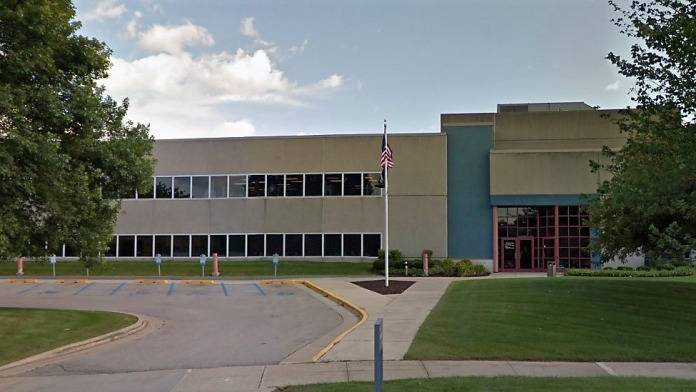
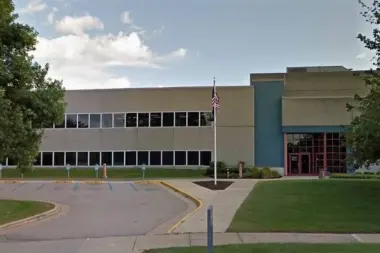
Other Forms of Payment
Medicaid is a state based program that helps lower-income individuals and families pay for healthcare. Medicaid covers addiction treatment so those enrolled can use their coverage to pay for rehab. When a program accepts Medicaid the client often pays very little or nothing out of their own pocket.
Private insurance refers to any kind of healthcare coverage that isn't from the state or federal government. This includes individual and family plans offered by an employer or purchased from the Insurance Marketplace. Every plan will have different requirements and out of pocket costs so be sure to get the full details before you start treatment.
Self-pay involves paying for treatment out of your own pocket. You can use savings or credit, get a personal loan, or receive help from family and friends to fund your treatment. If you don't have insurance or your insurance plan doesn't cover a specific program, self-pay can help ensure you still get the care you need.
Financial aid can take many forms. Centers may have grants or scholarships available to clients who meet eligibility requirements. Programs that receive SAMHSA grants may have financial aid available for those who need treatment as well. Grants and scholarships can help you pai for treatment without having to repay.
Medicare is a federal program that provides health insurance for those 65 and older. It also serves people under 65 with chronic and disabling health challenges. To use Medicare for addiction treatment you need to find a program that accepts Medicare and is in network with your plan. Out of pocket costs and preauthorization requirements vary, so always check with your provider.
Military members, veterans, and eligible dependents have access to specific insurance programs that help them get the care they need. TRICARE and VA insurance can help you access low cost or no cost addiction and mental health treatment. Programs that accept military insurance often have targeted treatment focused on the unique challenges military members, veterans, and their families face.
Addiction Treatments
Levels of Care
Outpatient Programs (OP) are for those seeking mental rehab or drug rehab, but who also stay at home every night. The main difference between outpatient treatment (OP) and intensive outpatient treatment (IOP) lies in the amount of hours the patient spends at the facility. Most of the time an outpatient program is designed for someone who has completed an inpatient stay and is looking to continue their growth in recovery. Outpatient is not meant to be the starting point, it is commonly referred to as aftercare.
Completing a drug or alcohol rehab program shouldn't spell the end of substance abuse treatment. Aftercare involves making a sustainable plan for recovery, including ongoing support. This can include sober living arrangements like halfway houses, career counseling, and setting a patient up with community programs like Alcoholics Anonymous (AA) or Narcotics Anonymous (NA).
Inpatient rehab is designed to stabilize clients who are exiting detox or those who are in some form of crisis. They are an important preliminary step designed to prepare clients for outpatient, sober living, or community-based care. Clients live at the treatment center and engage in intensive addiction counseling. Group and family therapy is common. Many programs also emphasize recovery-focused life skills training to support clients' sustained sobriety. Some programs offer evidence-based holistic therapies, such as meditation.
Treatments
The goal of treatment for alcoholism is abstinence. Those with poor social support, poor motivation, or psychiatric disorders tend to relapse within a few years of treatment. For these people, success is measured by longer periods of abstinence, reduced use of alcohol, better health, and improved social functioning. Recovery and Maintenance are usually based on 12 step programs and AA meetings.
The goal of drug rehab in Wisconsin is to address drug addiction as a complex issue that involves physical, mental, and relational aspects. During rehab, treatment focuses on each of these areas and gives you the tools you need to achieve and maintain sobriety.
Many of those suffering from addiction also suffer from mental or emotional illnesses like schizophrenia, bipolar disorder, depression, or anxiety disorders. Rehab and other substance abuse facilities treating those with a dual diagnosis or co-occurring disorder administer psychiatric treatment to address the person's mental health issue in addition to drug and alcohol rehabilitation.
A combined mental health and substance abuse rehab has the staff and resources available to handle individuals with both mental health and substance abuse issues. It can be challenging to determine where a specific symptom stems from (a mental health issue or an issue related to substance abuse), so mental health and substance abuse professionals are helpful in detangling symptoms and keeping treatment on track.
Opioid rehabs specialize in supporting those recovering from opioid addiction. They treat those suffering from addiction to illegal opioids like heroin, as well as prescription drugs like oxycodone. These centers typically combine both physical as well as mental and emotional support to help stop addiction. Physical support often includes medical detox and subsequent medical support (including medication), and mental support includes in-depth therapy to address the underlying causes of addiction.
Programs
Adult rehab programs include therapies tailored to each client's specific needs, goals, and recovery progress. They are tailored to the specific challenges adult clients may face, including family and work pressures and commitments. From inpatient and residential treatment to various levels of outpatient services, there are many options available. Some facilities also help adults work through co-occurring conditions, like anxiety, that can accompany addiction.
Recovery is most successful when clients feel accepted and validated by their peers and treatment providers. Facilities that offer LGBTQ-inclusive programming are committed to creating a safe space where everyone can grow and recover without fear of judgment or discrimination. They will have dedicated policies in place to create a safe and supportive environment that fosters free expression.
Serving in the military is both mentally and physically challenging, and can result in trauma that persists even after combat ends. Military programs are tailored to the specific and often complex needs of active duty personnel, veterans, and military families. Clients often access these programs through the U.S. Department of Veterans Affairs (VA).
Young adulthood can be an exciting, yet difficult, time of transition. Individuals in their late teens to mid-20s face unique stressors related to school, jobs, families, and social circles, which can lead to a rise in substance use. Rehab centers with dedicated young adult programs will include activities and amenities that cater to this age group, with an emphasis on specialized counseling, peer socialization, and ongoing aftercare.
Clinical Services
Cognitive Behavioral Therapy (CBT) is a therapy modality that focuses on the relationship between one's thoughts, feelings, and behaviors. It is used to establish and allow for healthy responses to thoughts and feelings (instead of unhealthy responses, like using drugs or alcohol). CBT has been proven effective for recovering addicts of all kinds, and is used to strengthen a patient's own self-awareness and ability to self-regulate. CBT allows individuals to monitor their own emotional state, become more adept at communicating with others, and manage stress without needing to engage in substance abuse.
Whether a marriage or other committed relationship, an intimate partnership is one of the most important aspects of a person's life. Drug and alcohol addiction affects both members of a couple in deep and meaningful ways, as does rehab and recovery. Couples therapy and other couples-focused treatment programs are significant parts of exploring triggers of addiction, as well as learning how to build healthy patterns to support ongoing sobriety.
Experiential therapy is a form of therapy in which clients are encouraged to surface and work through subconscious issues by engaging in real-time experiences. Experiential therapy departs from traditional talk therapy by involving the body, and having clients engage in activities, movements, and physical and emotional expression. This can involve role-play or using props (which can include other people). Experiential therapy can help people process trauma, memories, and emotion quickly, deeply, and in a lasting fashion, leading to substantial and impactful healing.
Research clearly demonstrates that recovery is far more successful and sustainable when loved ones like family members participate in rehab and substance abuse treatment. Genetic factors may be at play when it comes to drug and alcohol addiction, as well as mental health issues. Family dynamics often play a critical role in addiction triggers, and if properly educated, family members can be a strong source of support when it comes to rehabilitation.
Group therapy is any therapeutic work that happens in a group (not one-on-one). There are a number of different group therapy modalities, including support groups, experiential therapy, psycho-education, and more. Group therapy involves treatment as well as processing interaction between group members.
In individual therapy, a patient meets one-on-one with a trained psychologist or counselor. Therapy is a pivotal part of effective substance abuse treatment, as it often covers root causes of addiction, including challenges faced by the patient in their social, family, and work/school life.
Life skills trainings involve all the skills a person must have in order to function successfully in the world. These include time management, career guidance, money management, and effective communication. Truly successful addiction recovery is based on the ability to not only live substance-free, but to thrive. Life skills teaches the practical necessities of functioning in society, which sets clients up for success in life, and therefore sobriety.
Nicotine Replacement Therapy (NRT) is a way of getting nicotine into the bloodstream without smoking. It uses products that supply low doses of nicotine to help people stop smoking. The goal of therapy is to cut down on cravings for nicotine and ease the symptoms of nicotine withdrawal.
Nutrition and Food Services are responsible for the preparation and distribution of food to inpatients, outpatients, and volunteers. Their goal is to plan, prepare, and serve nutritious and great tasting meals. Healthy and nourishing food is important in the recovery of the Veteran patient. Registered Dietitians and Dietetic Technicians provide medical nutrition therapy to Veterans, in both inpatient and outpatient clinics.
Many veterans find themselves continuing to struggle with the aftereffects of severely stressful events (like combat, IED explosions, seeing comrades injured, or military sexual trauma). Some veterans may develop Post-Traumatic Stress Disorder (PTSD) as a result of such traumatic events. Their team understands the special issues of veterans who are dealing with the effects of such trauma. The PTSD Clinical Team (PCT) was created to help veterans feel more in control and increase satisfaction with their lives by working with them to effectively address these issues.
Amenities
-
Private Setting
-
Residential Setting
Staff & Accreditations
Staff

Christine Kleckner
Executive Director
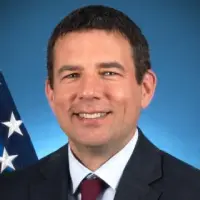
Abe Rabinowiz
Associate Director
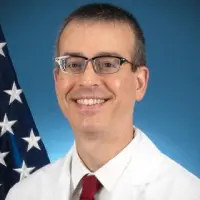
Ryan Marsh, MD
Chief of Staff
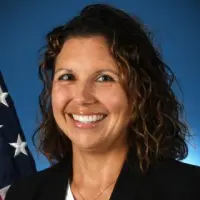
Lupe Mejia
Assistant Director
Accreditations

The Joint Commission, formerly known as JCAHO, is a nonprofit organization that accredits rehab organizations and programs. Founded in 1951, the Joint Commision's mission is to improve the quality of patient care and demonstrating the quality of patient care.
Joint Commission Accreditation: Yes
Accreditation Number: 7657
Contact Information
1 Science Court
Madison, WI 53711